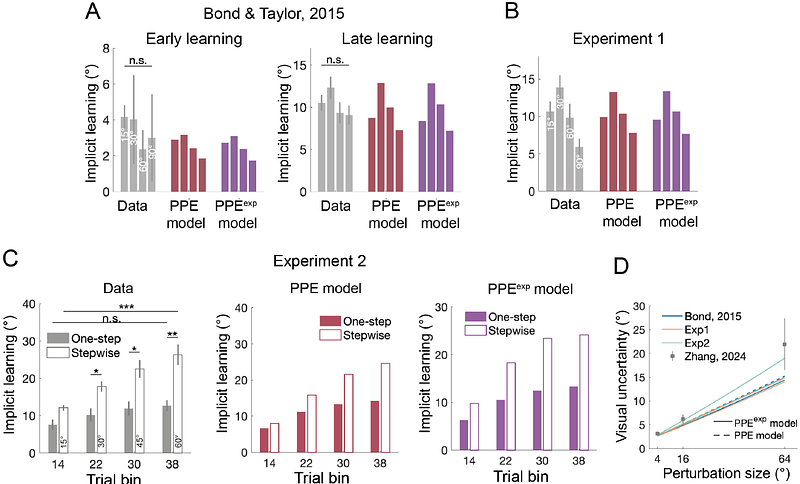Perceptual prediction error supports implicit process in motor learning.

Perceptual prediction error supports implicit process in motor learning.
Zhang, X.; Wei, K.
AbstractError-based learning underlies motor learning, but what specific motor error drives implicit learning, the procedural component of motor skill, is unclear. A typical action consists of a movement and a performance outcome, e.g., grabbing a coffee cup involves a reaching movement and its actual landing of the hand relative to the target cup. While performance error is fundamental for the cognitive component of motor learning, what error, either performance or movement prediction error, underlies implicit motor learning has not been resolved. These two errors are hard to disentangle as the performance outcome is an integral part of the movement. Here we used the classical visuomotor adaptation paradigm, in which people learn to counter visual perturbations by deliberately aiming off the target, to dissociate the performance error from the prediction error. Using a series of behavioral experiments and model comparisons, we revealed that movement prediction error, but not performance error, can parsimoniously explain diverse learning effects. Importantly, despite the perturbation is visual, the movement prediction error is not specified in visual terms, but determined by a perceptual estimate of the hand kinematics. In other words, contrary to the widely-held concept of sensory prediction error, a perceptual prediction error drives implicit motor learning.